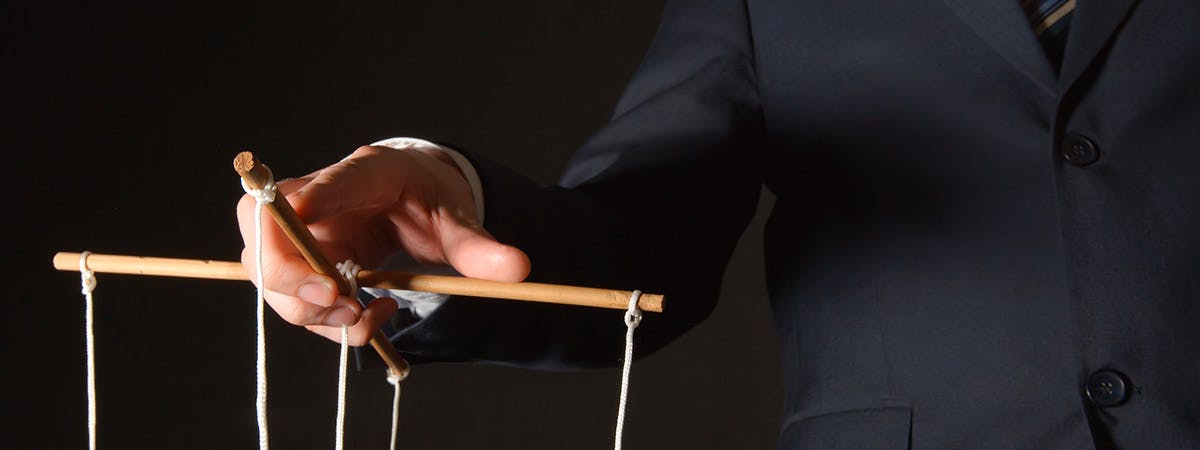Amidst the 16 Days of Activism Against Gender-Based Violence, I thought it would be beneficial to reflect on my attendance to the fifth, annual Coercive Control conference in London.
 Dr Sarah Pemberton
Dr Sarah Pemberton
Senior Lecturer in Criminology

An event which brings together academics, practitioners, family members and victim-survivors, all of whom have a shared interest in raising awareness and ultimately eradicating domestic abuse. For me, it was an important opportunity to update my knowledge and inform my practice ahead of the delivery of my Understanding Domestic and Sexual Violence module from our MA in Criminology.
What follows are a few points of interest from the day.
Evan Stark gave the keynote speech, which seemed wholly appropriate given that coercive control was a term first coined in his book Coercive Control: How Men Entrap Women in Personal Life (2007). His work has enabled us to move away from thinking of domestic abuse as simply about physical violence but about a pattern of behaviour which strips the victim of their person – a form of abuse which takes away a person’s sense of self and restricts their liberty.
As Stark states, “the victim becomes captive in an unreal world created by the abuser, entrapped in a world of confusion, contradiction and fear”. Moving forwards, he is keen to re-examine the previous work that has been done including his own and revisit the role of the children in these cases. He argues that we should no longer view them as witnesses or bystanders but reconceptualise them as targets of coercive control. A key sentiment from the day was that by understanding coercive control, we will understand more fully domestic abuse.
Stark’s call to reconsider the role of children in these settings made the talk given by David Challen resonate even more.
In 2010, Sally Challen murdered her husband of 31 years, Richard Challen. Sally was sentenced to eighteen years in prison and has served eight of these years. Her youngest son David, passionately and articulately spoke at the Conference of his campaign to have his mother’s murder conviction overturned and for her to be recognised as a victim of domestic violence. He spoke of how she had been in a coercively controlled relationship from the age of 15 up until the age of 56, which he described as a lifelong campaign of psychologically abuse which led to her temporary loss of control and the subsequent murder of his father.
David argued that the original case did not take into account the psychological abuse and what he now understands as coercive control. This took the form of controlling and coercive behaviours, for example, Sally was expected to accept her husband’s adulterous behaviour – affairs, going to brothels and other inappropriate behaviours, he controlled what she could or could not do with money, who she could or could not see, how she should look, how she should dress, what she could eat, what she could drink, he raped her, he publically fat shamed her, verbally and physical abused her. The courts only took into account the final ten years of the relationship, a snapshot of Sally’s life, not the 41 years that they were together for and therefore missing so much of the ‘violence’ that had been suffered.
David is often asked ‘what did he (his dad) do’? He very much feels like society and the media want terrible examples of abuse to understand how bad coercive control is, but that is not what it is. It is an accumulation of psychological control which can create a devastating circumstance over the lifetime like it did for his mother, or even in a matter of months. He uses the case of Steven Gane and Kelly Sutton to exemplify this point, where it took five months of a campaign of relentless coercive and controlling behaviours by Gane to drive Sutton to suicide.
As Challen articulates, and I paraphrase:
"Richard Challen was our father, and he will always be our father. As much as I am my mother’s son seeking for her abuse to be recognised, I am also my father’s son. I have done my due-diligence and acknowledged the gravity of a life being taken and we are not saying that my mother shouldn’t serve a prison sentence, she is and she does, but as a society we must learn from the crimes committed so that it must never happen again. Rather than casting another person into prison, another woman into prison for a crime that is rooted in domestic violence which we refuse to acknowledge plays a part, we must understand how such a crime has been committed, if we don’t it will just happen again and make no mistake coercive control is a societal issue, domestic violence is a societal issue. Collectively we have a responsibility to be human to one another and not turn our heads the other way".
In March 2018, Sally won leave to appeal against her conviction, on the grounds that she’d suffered “coercive and controlling behaviour” from her husband – something that did not become a criminal offence until four years after her trial, under the 2015 Serious Crime Act. The appeal is set to take place on the 27th and 28th February 2019 and will be a landmark case in domestic abuse if coercive control can be considered as a defence to murder.
If you are interested in finding out more, then please follow David Challen on Twitter, and take a look at the Justice for Women page on the case.




